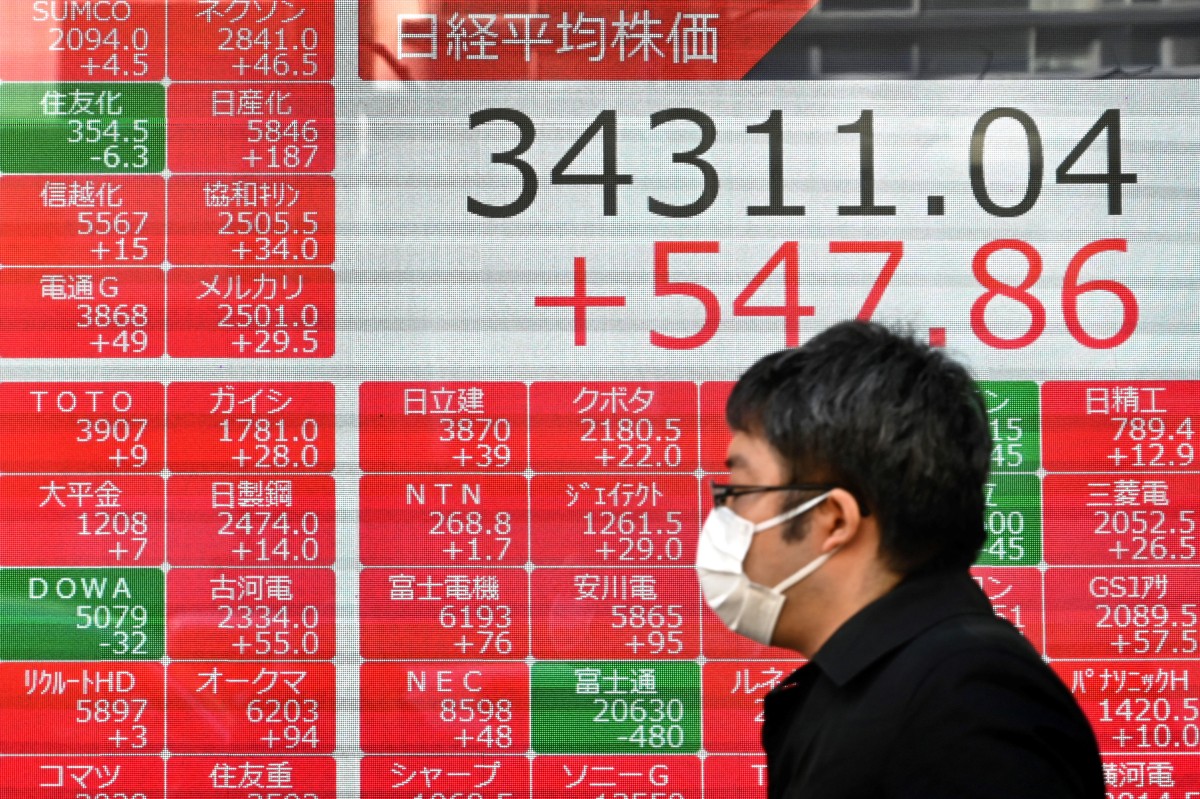London, United Kingdom – European stock markets fell Monday with focus on data showing Germany’s economy shrank last year, while oil prices cooled despite fresh US-UK strikes on Houthi targets in Yemen.
“European stock markets were softer… as the week got off to a relatively quiet, risk-averse start,” noted Neil Wilson, chief market analyst at Finalto trading group.
Europe’s biggest economy Germany shrank slightly in 2023, official data showed, as costly energy, high interest rates and cooling foreign demand took their toll.
Output contracted by 0.3 percent year-on-year, federal statistics agency Destatis said in preliminary figures.
In Asia, Tokyo rose for a sixth successive day to build on last week’s advances, which saw the Nikkei break above 35,000 points for the first time since 1990 thanks to a revival of Japanese inflation and a weaker yen that helps exporters.
Shanghai also enjoyed a rare gain, after China’s central bank decided not to cut short-term interest rates but pumped billions of dollars into financial markets.
Taipei gained after pro-sovereignty candidate Lai Ching-te won Taiwan’s presidential election, but his Democratic Progressive Party (DPP) lost its majority in the legislature.
‘Pragmatic approach’
The result would likely see the DPP having to work with smaller parties including the Kuomintang — seen as more favorable to Beijing — leading to more compromises.
Lai’s “modest winning margin and the legislative impasse suggest limitations on pursuing radical agendas, especially regarding Taiwan’s independence”, said Saxo Markets’ Redmond Wong.
“A pragmatic approach may see him endeavoring to maintain the status quo and even facilitate de-escalation. While mainland China has expressed dissatisfaction, measured reactions may ease immediate concerns of heightened cross-strait tensions.”
Oil prices dropped, having surged Friday over supply concerns as tensions mount in the Middle East.
The United States and Britain have in recent days launched strikes against Yemen’s Houthis in retaliation to the Iran-backed rebels’ attacks on Red Sea shipping they say show solidarity with Gaza.
Wall Street reopens Tuesday after a long holiday weekend in the United States. The dollar climbed against main rivals on Monday.
Data Friday showed US producer prices fell last month for the third time in a row — the best run since 2020 — providing a boost to bets on a cut in interest rates by the Federal Reserve in the first quarter.
The producer price index reading gave traders a much-needed shot in the arm after a forecast-beating rise in the consumer price index, a surge in jobs and Fed minutes suggesting officials would keep rates elevated for some time.

